Total fact-fail by EU’s favorite fact-checkers
This blog represents a range of opinions prepared by a team of authors working at RT. It contains commentary, views, feedback and responses to various events and news media items.
As the think tank movement exploited perceived threats to Europe to promote the “Russian propaganda” trope, the EU stepped in with its own “mythbusters.” Since then, the much-hyped Stratcom East has poured and nitpicked its way through the Russian press but rarely, if ever, landed any blows.
If you've never heard of the outfit, don’t despair, because you aren’t missing much. Nevertheless, given that it’s a well-funded EU initiative designed to discredit Russian media, its antics are occasionally worthy of mention – especially during times when it turns questionable fact-checking, logic, and interpretation into an art form.
Such as when its 77th “Disinformation Review” dropped, with six attacks on RT. All of Stratcom East’s “disproofs” and “fact-checks” were predictably light on facts, and all smacked of desperation to justify its existence, by trawling through RT’s output to find something, anything, to report.
Fact-check 1:
Stratcom East (SE) takes issue with an article that quotes a Russian senator as saying “the spreading of Western propaganda myths helped the Baltic countries join the European Union and NATO, and it has become a state building principle for modern Ukraine. The sanctions are called a reaction, which is also Western propaganda.” That’s right; the intrepid analysts slate RT for merely carrying the words of Konstantin Kosachev, without any editorial commentary on them.
As it happens, Kosachev had facts on his side when making a case for how the West courted these countries. For example how, in recent times, EU membership seems to go hand-in-hand with also taking part in the NATO club. Furthermore, on the record, Victoria Nuland explained how the US invested $5 billion in trying to draw Ukraine into its orbit, and Carl Gershman of the National Endowment For Democracy described it as the “biggest prize” in a Washington Post article, shortly before “Euromaidan” kicked off. Perhaps, describing these decisions as “independent” and part of an entirely “democratic process” helps the EU folks sleep better.
Fact-check 2:
Next, SE accuses Nikolay Bogachikhin (head of RT UK) of straight-up lying when he told the BBC “that surely, all the other broadcasters were found in breach of Ofcom regulations many more times than RT.” Mythbusters tried to do some magical math, which still doesn’t change the fact (verifiable via public Ofcom bulletins), that since RT began broadcasting in the UK in 2006, it’s been found in breach of the regulator’s rules fewer times that other, homegrown, British broadcasters.
Here's a fun fact: In 2015 Ofcom found a whopping 50 violations of its regulations between BBC World News, CNN International and CNBC!
And another: when news of these many breaches became public, The Independent ran a story highlighting the fact that the BBC repeatedly breached Ofcom's code with “propaganda content.” A few weeks later, the story quietly disappeared from The Independent’s website, with no explanation for the spiking. Nevertheless, thank the internet gods for Twitter, which still has a record!
Fact-check 3:
SE doesn’t want to believe Bogachikhin’s assertion that “RT(’s) Moscow office never talks to the Kremlin” about RT’s editorial choices. What do they present as proof to the contrary? Why the “numerous accounts from previous employees at RT.” Mythbusters, helpful darlings that they are go to the trouble of linking to what are supposed to be four exposés, but turn out to be:
1) a story which isn't about RT, citing an anonymous reporter who is not from RT
2) an account from a fake “intern” who spent time at the RT Deutsch office yet never made any claims about Kremlin instructions
3) A Russian-language article that doesn’t even mention RT
4) and an article from a person who never worked at RT, which provides quite literally zero facts to substantiate its claims.
Bravo!
Fact-check 4:
After trying to pick a fight with Bogachikhin, SE moves on to RT’s editor-in-chief Margarita Simonyan and her speech during the visit of Chinese leader Xi Jinping to Moscow. There, she explained how Kosovo “became an independent state due to the one-sided and biased coverage by all the world's media, by the so-called mainstream media.”
The EU agency’s issue is this: “in 1999, the NATO operation for Kosovo followed (sic) over a year of intense efforts by the UN and the Contact Group (the U.S, UK, France, Germany, Italy, Russia), to bring about a peaceful solution. The UN Security Council on several occasions branded the ethnic cleansing in Kosovo and the mounting number of refugees driven from their homes as a threat to international peace and security. NATO's Operation Allied Force was launched to prevent the large-scale and sustained violations of human rights and the killing of civilians. Kosovo's unilateral declaration of independence from Serbia in February 2008 was in accordance with international law, the international court of justice (ICJ) has found."
The problem here is where to start, as this is an example of one-sided propaganda if there ever was one. What happened was NATO unilaterally attacked Yugoslavia, without a UN mandate (which placed it in breach of international law). A move condemned by voices as disparate as Israeli Foreign Minister Ariel Sharon (who called it an act of "brutal interventionism”) and Amnesty International which accused NATO forces of deliberately targeting civilians.
Then there’s the issue of Kosovo’s independence from Serbia. The fact is that it still isn’t recognized by large swathes of the world, such as Brazil, China, India, Iran, Mexico, Nigeria, and Russia. Quite a few NATO (and EU) members still consider Kosovo a part of Serbia, such as Greece, Slovakia, Romania and Spain. So, Stratcom’s self-righteous stance doesn’t reflect reality.
Fact-check 5:
SE’s penultimate objection is to an RT Deutsch commentary equating the G20 protests in Hamburg with Kiev’s disastrous “Euromaidan” episode and illegal marches in Moscow. “A double standard to perceive the Hamburg riots around the G20 summit as illegitimate protests and say the Maidan was a legitimate democratic revolution,” it quotes. “It is a double standard to see the police action against the unauthorized demonstrations in Moscow against corruption as bad while the police action against the unauthorized, illegal camps of G20 opponents was considered ok in the German media.”
The Mythbusters argue that “the spontaneous onset of the Euromaidan protests was a reaction of large parts of the Ukrainian population to the Yanukovich government’s sudden departure from the Association Agreement with the European Union in November 2013. There were several protests at the G20 summit that were legal and peaceful. The were some protests that were violent and therefor(e) illegal. In Hamburg, it was the violent protestors that were met with police action. In Moscow, the demonstrators were not violent but were still met with police violence and detention. According to the Constitution (sic), citizens of the Russian Federation shall have the right to assemble peacefully, without weapons, hold rallies, mass meetings and demonstrations, marches, and pickets, but the opposition usually doesn't get authorization for their demonstrations.”
Let’s start with the fact that Euromaidan was heavily backed by Western politicians, with the likes of US Senator's John McCain, (whose comments: “I think it was [Henry] Kissinger, I'm not sure, said that Russia, without Ukraine it's an eastern power, with Ukraine it's a Western power” betrayed his interests as more about hurting Moscow than helping Kiev) and Chris Murphy literally turning up on a Kiev stage to encourage activists to overthrow their democratically elected government, not to mention Nuland’s aforementioned efforts and her infamous cookies.
Stratcom’s accusation that the “Russian opposition usually doesn't get authorization for their demonstrations” is pure nonsense. Especially considering the protest they refer to was officially sanctioned but police become involved after the organizer, Aleksey Navalny, made a last minute decision to move the event to another location. The politician’s agreed-upon gathering at the original location was abandoned for an impromptu march on Tverskaya Street, where a history festival, attended by thousands of children, was taking place. Indeed, many have argued Navalny deliberately made the move because he was looking for confrontation, which would generate the publicity he needs to maintain momentum for his movement.
Fact-check 6:
The sextet is completed by a critique of RT’s assessment that a new NATO [documentary] film glorifies the Baltic Nazi collaborators known as the 'Forest Brothers.' In this case, SE’s objection centers on how “no evidence is given. (The) NATO video exists, but (the) Forest Brothers were Estonian, Latvian and Lithuanian partisans who fought against Soviet rule during the Soviet invasion and occupation during and after the (sic) World War II."
As Alternet reported last month, many leading historians and anti-Nazi investigators have condemned the NATO film for rewriting history. “By going beyond turning a blind eye to the worship of pro-Hitler forces in Eastern Europe,” said historian Dovid Katz, NATO “is crossing the line right into offering its moral legitimization of Nazi forces such as the Latvian Waffen SS (who required an oath of loyalty to Hitler for membership.”
Katz also pointed out how many ‘Forest Brothers’ “were fascists, including some recycled killers from the 1941 genocide phase of the Latvian Holocaust.” His fellow historian, Efraim Zuroff, also noted “the problem with the screening by NATO of the film on the Forest Brothers is that it presents these men as genuine heroes with a blameless past when in reality many of them had murdered Jews during the Holocaust." This “was, in fact, one of the reasons that some of them joined the anti-Soviet resistance—to avoid prosecution by the Soviets for their collaboration with the Nazis,” he added. So, it’s fair to say the EU’s plucky arbiters of taste have been found out. Again.
The problem with efforts such as Stratcom East, or the likes of PropOrNot and the German Marshall Fund of the United States and its already widely discredited “Dashboard,” is how they all quickly fall flat. This is inevitable when instead of finding falsehoods or let alone uncovering some vast Kremlin conspiracy to spread “fake news,” backed up by facts, they simply lash out against any and all opinions with which they disagree. Or those that counter the narrative their sponsors favor.
This means they often have to resort to fakes of their own to smear genuine news – which renders the whole thing redundant.
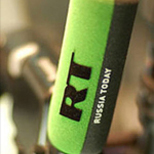
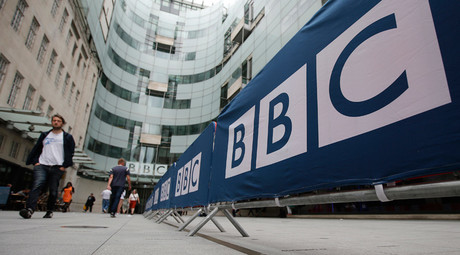
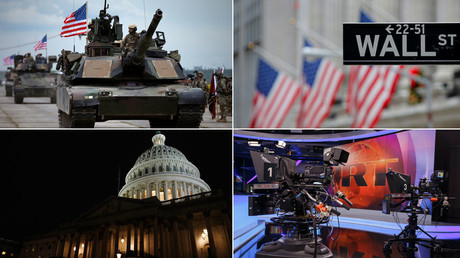
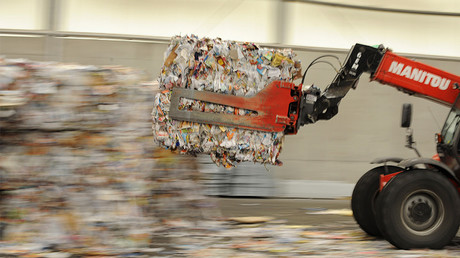
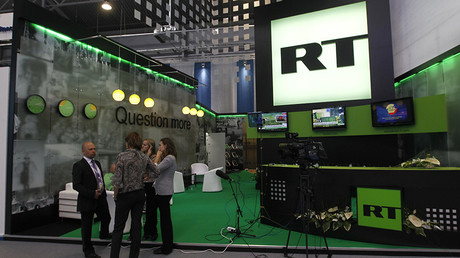

0 Comments:
Post a Comment
Subscribe to Post Comments [Atom]
<< Home